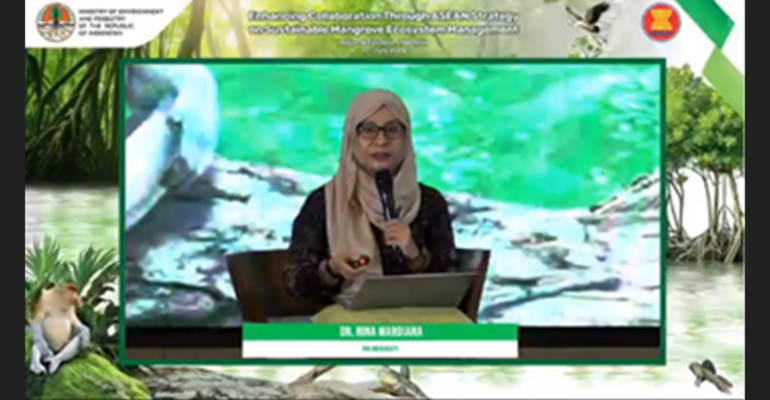IPB University Expert Emphasizes the Urgency of Collaborative Government to Strengthen Mangrove Conservation in ASEAN

Dr Rina Mardiana, Advisory Board of the Center for Agrarian Studies, IPB University, was one of the speakers at The 22nd ASOF International Seminar at Vimala Hills Resort Spa and Convention Bogor.
On that occasion, this lecturer at the Faculty of Human Ecology, IPB University,
explains the importance of regional cooperation and collaborative government management in ASEAN in the socio-economic scope of mangrove conservation.
“Collaborative governance is important to strengthen regenerative mangrove forest governance in the ASEAN region, involving coordinated efforts from governments, scientists, local communities, non-governmental organizations and the private sector to achieve common conservation goals,” she said.
Dr Rina explained that the collaborative process for sustainable mangrove forest management in the ASEAN region involves five strategic actions. Namely mapping and assessing mangrove forest ecosystems, increasing awareness and capacity, strengthening governance and policies, implementing technical interventions, and facilitating understanding among ASEAN member countries through regional forums.
She continued, joint efforts to maintain mangrove ecosystems, communities and countries in ASEAN not only protect the environment but also strengthen economic and social resilience in coastal areas.
Indonesia, with its vast archipelago and diverse coastal communities, shows the importance of local wisdom and traditional knowledge in mangrove conservation. Sustainable management practices and integration of mangroves in coastal management policies support ecosystem resilience and sustainable socio-economic development.
“Balancing mangrove health and socio-economic development in the ASEAN region can be achieved through an integrated approach involving policy reform, community involvement and sustainable practices,” explained Dr Rina.
By transitioning to regenerative governance and promoting collaborative efforts among ASEAN member countries, he continued, the region can ensure the resilience and prosperity of its ecosystems and people, safeguarding a sustainable future. (MW) (IAAS/ASD)



